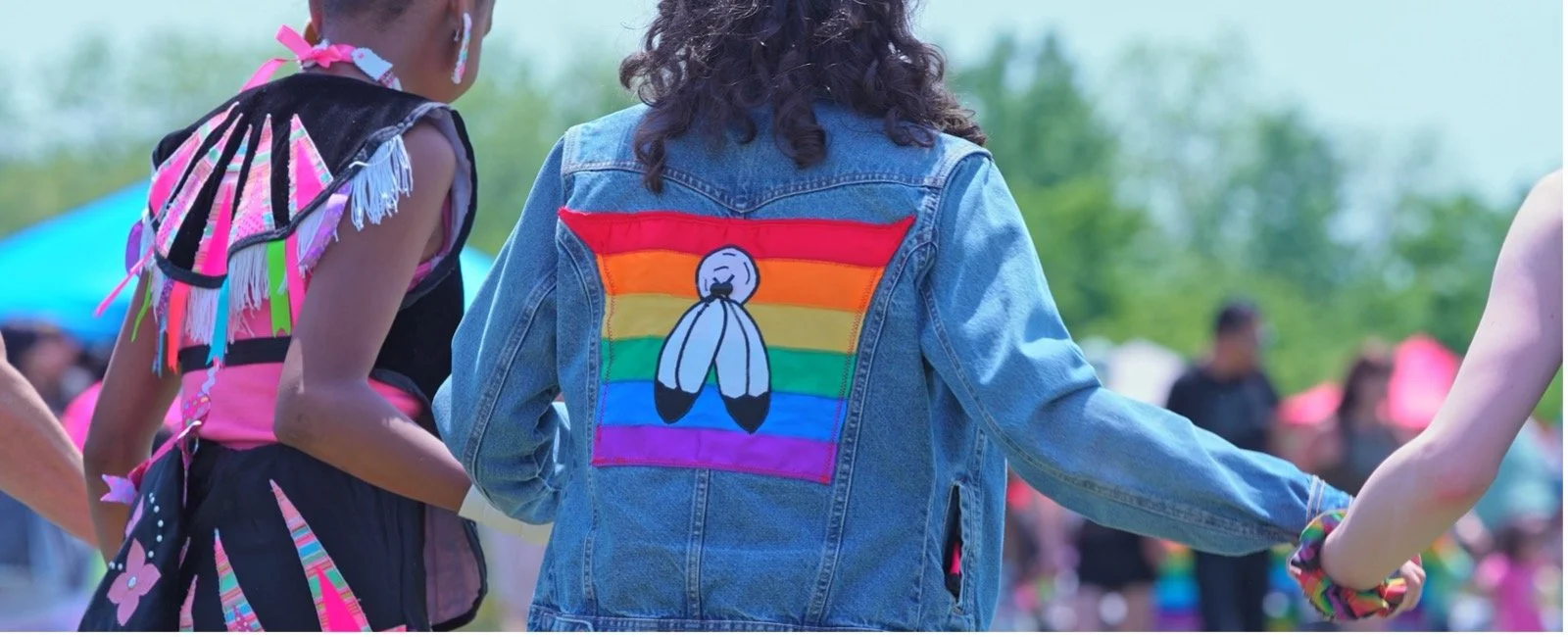In the past few decades, perspectives on Indigenous health in Canada have evolved dramatically. Thanks in no small part to the work of First Nations, Métis, and Inuit Elders, knowledge keepers, health care professionals, researchers, and advocates, there is increasing awareness of the need to view Indigenous health from a holistic lens. Understanding the historical, cultural, and social determinants that impact Indigenous quality of life, and respecting the cultural and spiritual beliefs tied to Indigenous well-being, are key.
In honour of National Indigenous Peoples Day, CHILD-BRIGHT's Equity, Diversity, Inclusion, Decolonization and Indigenization (EDI-DI) Program has put together a collection of educational resources on Indigenous health. These include:
a timeline of key milestones relating to Indigenous health in Canada,
an examination of the social factors impacting the health outcomes of First Nations, Métis and Inuit people in Canada, and
an introduction to decolonizing practices that can make a difference.
Read on to discover these resources and to learn how CHILD-BRIGHT is taking steps to support Indigenous health.
Indigenous health through history
In the infographic below, readers will find a comprehensive timeline showcasing key events and developments that have shaped Indigenous health and wellness in Canada. It presents the profound and ongoing consequences of colonialism, tracing the ripple effects of racism and discrimination from the pre-1600s to the present day. It also highlights pivotal moments of progress, like:
the 1988 Indian Health Transfer Policy,
the 2011 Aboriginal Children’s Health and Well-being Measure, and
the 2023 Indigenous Child Development Initiative.
In addition, it showcases the emergence of Indigenous-led research and initiatives, especially in the last five years.
For those interested in learning more about the history of Indigenous health in Canada, this resource is a great jumping-off point.
Download an accessible version of this infographic
A holistic health perspective
The following infographic brings together three research articles exploring the broader social determinants of health affecting Indigenous communities. They discuss the importance of viewing Indigenous health from a holistic, or comprehensive, lens.
“Indigenous health and well-being encompass more than just physical health; they include mental and emotional wellbeing, community health, and cultural continuity.”
The articles broach the vital relationships that First Nations, Métis, and Inuit people have with land, water, family, culture, and language, highlighting the profound impact they have on their sense of identity and well-being. “The erosion of these connections can lead to significant health disparities including mental health challenges, educational barriers, and housing insecurity,” according to the infographic.
Read the full infographic to learn more about the complex interplay between social determinants and their collective impact on Indigenous health outcomes.
Download an accessible version of this infographic
Decolonizing practices in research
Like health care providers and policymakers, researchers can adopt strategies to address systemic inequities in Indigenous health and design more inclusive, progressive patient-oriented research (POR) projects.
The following infographic provides an overview of cultural safety, sensitivity, and humility in health care and in research. These distinct but interconnected practices go beyond recognizing cultural diversity; they challenge researchers to make an ongoing commitment to self-reflection, learning, and improvement:
Cultural safety comes down to creating environments that are safe and free of discrimination. In a research context, this might involve designing research protocols that don’t harm or infringe on Indigenous communities.
Cultural sensitivity entails understanding the nuances of cultural beliefs and values. For a researcher, this might mean using data collection methods that align with Indigenous norms and practices.
Finally, cultural humility is about being open to learning from patients and people with lived and living experience. For instance, researchers may co-design a study or project with Indigenous community representatives.
Access the infographic below to learn more about cultural safety, sensitivity, and humility and how these approaches can be applied in health research and beyond.
Download an accessible version of this infographic
How CHILD-BRIGHT is working to support Indigenous health
CHILD-BRIGHT is committed to creating equitable, accessible, and inclusive research environments that centre the voices of equity-deserving communities in Canada.
With this vision in mind, we have worked to understand the key contributions of Indigenous knowledge to POR and actively engage with Indigenous partners in research. For example, we are proud to collaborate with participating First Nations communities in Ontario on the Prenatal Opioid Exposure and Neonatal Abstinence Syndrome project.
Furthermore, CHILD-BRIGHT's EDI-DI Program was established in 2022 to ensure that all voices, bodies, and experiences are included at every level of our work. This March, we were delighted to welcome Marlyn Bennett to our team as EDI-DI Co-Lead. Marlyn is Anishinaabe from the Treaty 1 community of Sandy Bay Ojibway Nation in Manitoba, Canada. Marlyn’s knowledge, expertise, and lived experience are helping CHILD-BRIGHT make the next leap in our journey towards improving Indigenous health and well-being in Canada.
The EDI-DI Program is currently offering a webinar series, Applying Anti-Racism Principles in Health Care, which aims to highlight the impacts of racism on research outcomes and health care delivery and offer practical anti-racism strategies. Registration is open for the session on July 31, 2024. Visit the event page for full details and to reserve your spot.






